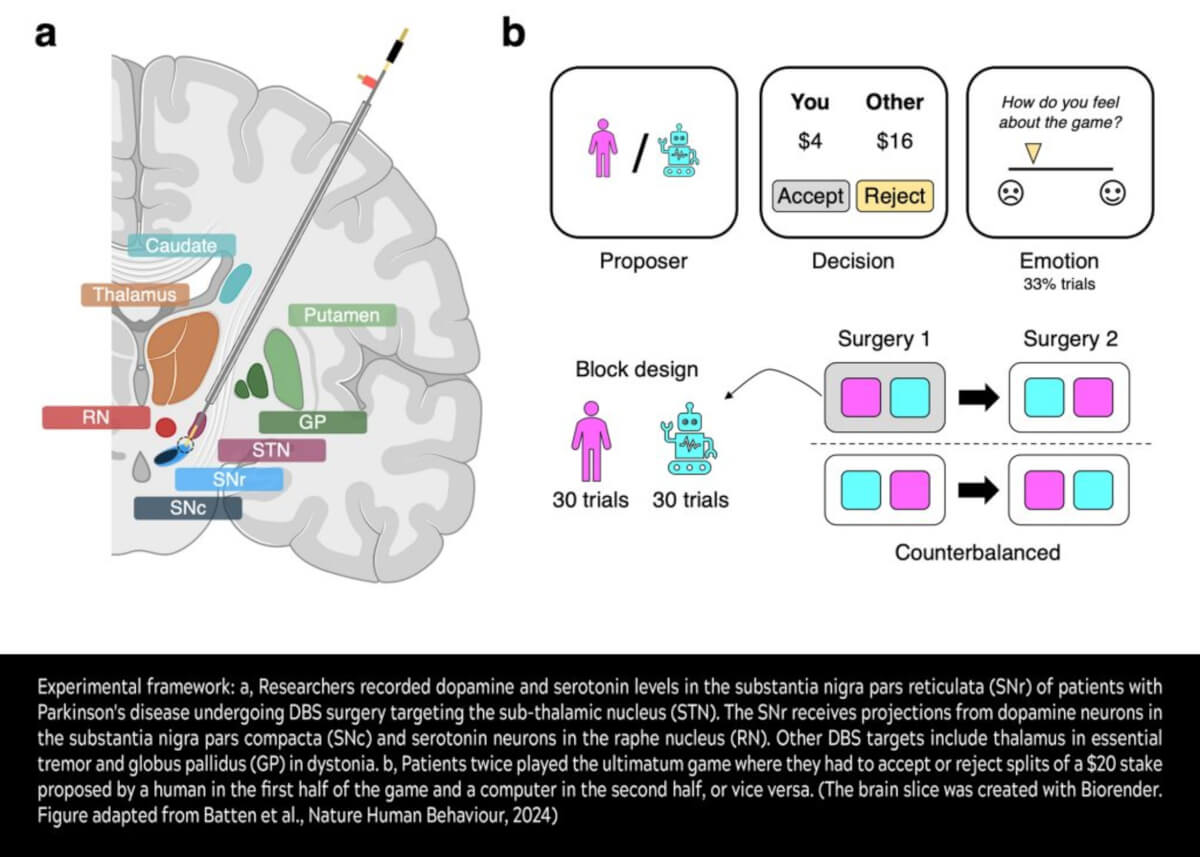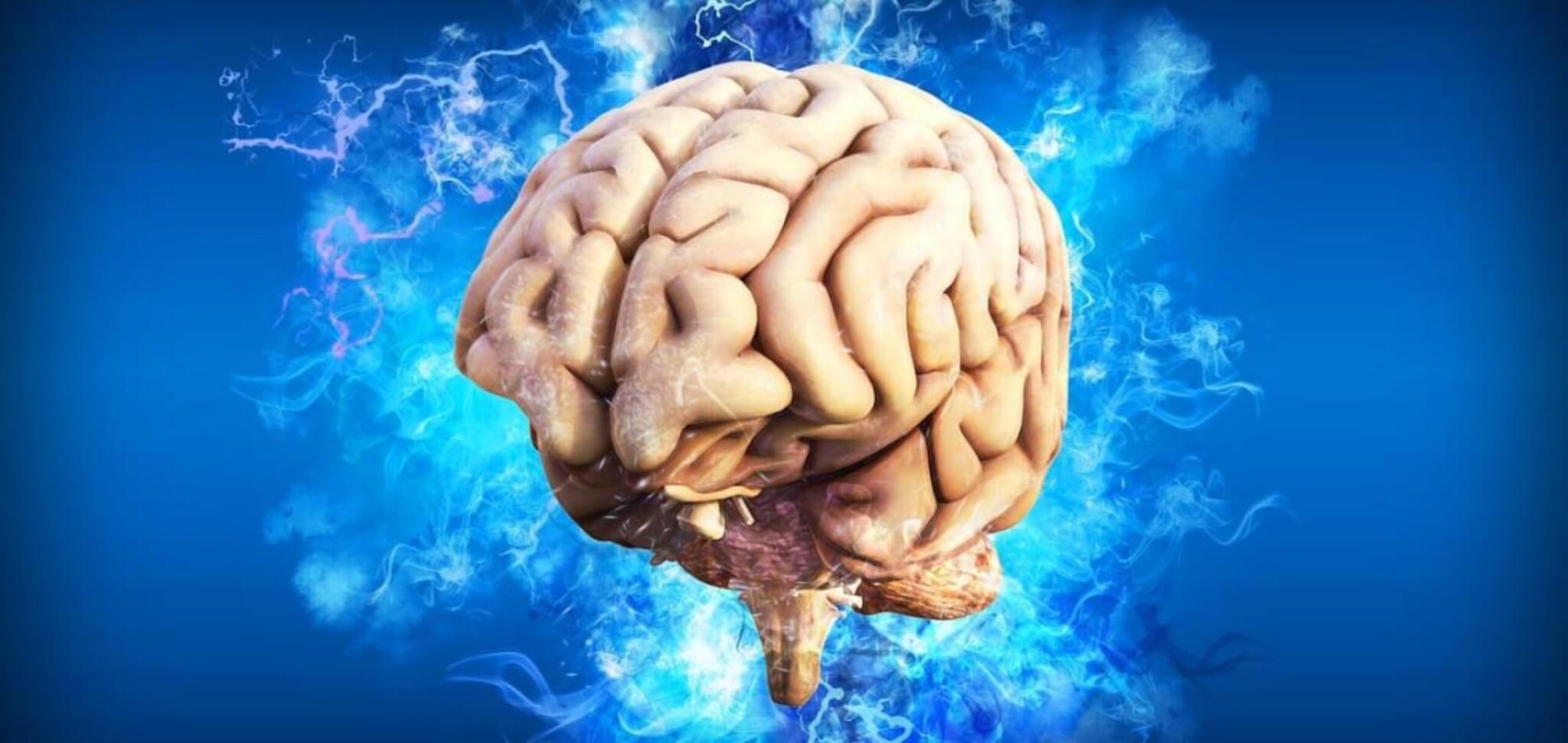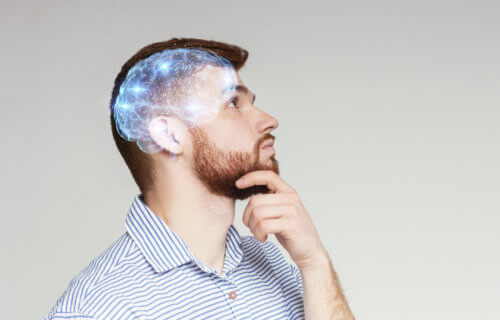🔑 Key Findings:
- Dopamine and serotonin both play a role in human social behavior
- Researchers discovered the link while examining Parkinson’s disease patients
- The findings open a door to treating various brain disorders
BLACKSBURG, Va. — A first-of-its-kind study is changing the way scientists view social decisions. Virginia Tech researchers have uncovered how two chemicals in the brain, dopamine and serotonin, play a crucial role in shaping our social behaviors. This insight came from a unique study involving Parkinson’s disease patients who were awake during brain surgery, providing a rare glimpse into the brain’s inner workings.
The study focused on the brain’s substantia nigra, a key area linked to movement control and reward processing. Through this research, scientists discovered a novel neurochemical process explaining a common human behavior: the tendency to treat offers presented by computers differently than identical offers coming from humans.
Participants in the study were involved in an “ultimatum game,” a decision-making scenario where they had to choose whether to accept or reject different splits of $20 offered by both human and computer players. For example, a player might propose keeping $16 and giving $4 to the patient. If the patient rejects this offer, neither party receives anything.
“You can teach people what they should do in these kinds of games — they should accept even small rewards as opposed to no reward at all,” says study senior author Read Montague, the Virginia Tech Carilion Mountcastle professor with the Fralin Biomedical Research Institute at VTC, in a university release.
“When people know they’re playing a computer, they play perfectly, just like mathematical economists — they do what they should do. But when they’re playing a human being, they cannot help themselves. They are often driven to punish the smaller bid by rejecting it.”

This behavior, the researchers found, is influenced by the interaction between dopamine and serotonin in the brain. Dopamine appears to track whether an offer is better or worse than previous ones, acting as a kind of ongoing evaluation system. Serotonin, on the other hand, seems to assess the value of each offer independently. This dynamic interplay, particularly more pronounced in interactions involving fairness with other humans, suggests these chemicals help our brains assess social situations’ value.
The study not only sheds light on the complex dance between dopamine and serotonin but also opens new avenues for understanding and treating Parkinson’s disease. In Parkinson’s, a loss of dopamine-producing neurons affects brain regions like the striatum, leading to motor and cognitive symptoms. The research suggests that as dopamine decreases, serotonin activity changes, hinting at a compensatory mechanism that could be targeted in new treatments.
“The raw data that we’re collecting from patients isn’t specific to dopamine, serotonin, or norepinephrine — it’s a mixture of those,” notes study co-author Ken Kishida, an associate professor of translational neuroscience and neurosurgery at Wake Forest University School of Medicine. “We’re essentially using machine-learning type tools to separate what’s in the raw data, understand the signature, and decode what’s going on with dopamine and serotonin.”
This breakthrough in measuring multiple neurotransmitters simultaneously marks a significant advancement in neuroscience, offering a more detailed view of how our brains process social interactions.

The implications of this research extend beyond Parkinson’s disease, with potential applications in psychiatry and the broader understanding of brain disorders.
“We have an enormous number of people in the world who suffer from a variety of psychiatric conditions, and, in many cases, the pharmacological solutions do not work very well,” explains Michael Friedlander, executive director of the Fralin Biomedical Research Institute and Virginia Tech’s vice president of health sciences and technology.
“Dopamine, serotonin, and other neurotransmitters are in some ways intimately involved with those disorders. This effort adds real precision and quantitation to understand those problems. The one thing I think we can be sure of is this work is going to be extremely important in the future for developing treatments.”
This study, over a decade in the making, builds on previous research by Montague’s team into the rapid roles dopamine and serotonin play in perception and decision-making. It represents a crucial step forward in the quest to understand what makes us human, offering new insights into the neurochemical underpinnings of our social decisions and behaviors.
The study is published in the journal Nature Human Behaviour.
